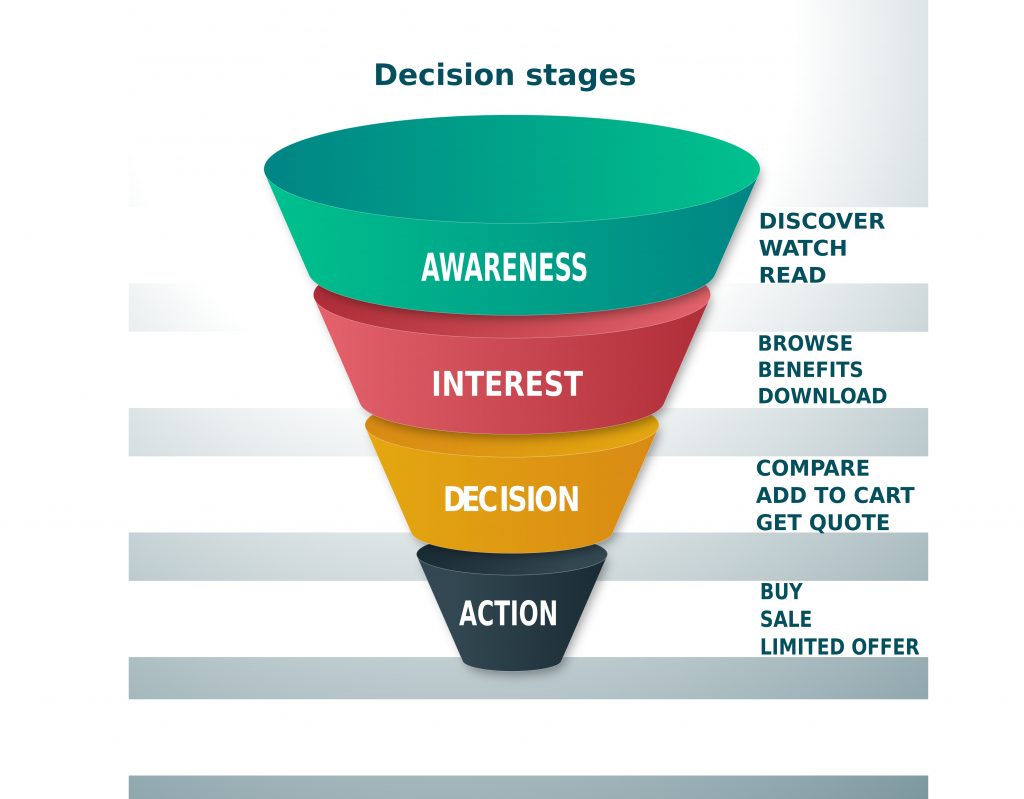So you’ve set up your Pay Per Click ad campaign, rubbed your hands together; and now you’re just waiting for the customers to come flooding in?
Getting the most out of your PPC campaign means using some additional strategies to maximise your advertising impact. In this article, we take a look at some of the top PPC tips to help you run a successful paid marketing campaign.
The past few years have seen the growth in voice search and the steady progression of AI. Audience targeting and remarketing have also become major factors in PPC as well as the popularity of campaign management tools.
Digital marketing has been busy during the pandemic years of 2020 and 2021. Our increased reliance on the internet has shifted more business focus online.
So, if you’re looking to maximise your online advertising game into 2023 and beyond, these are the expert PPC tips that can make a big difference to your results.
Audience is more important than keywords
When it comes to running a successful ad campaign, of course, you need to know what your keywords are.
Keywords have been the bedrock of marketing campaigns since Google first popped up back in the early 00s. And although keywords are a big deal, they’re not as big a deal as correctly targeting your audience.

You may or may not have seen ‘The Great Hack’, and if you haven’t, I strongly recommend it. Although this jaw dropping documentary is about the Cambridge Analytica/Facebook scandal, there are some fascinating marketing lessons to be learned around audience targeting.
Now, you might not be running a shady campaign designed to progress a political agenda. And here at ClickCease, of course we don’t condone farming user data without their consent… But profiling your audience by their interests and understanding how you can press those buttons is one of the most important expert PPC tips you can take on board. In a nutshell, this includes:
- Targeting their reading/shopping/browsing habits
- Using phrases or language that they use
- Making eye-catching statements to encourage engagement (using some lessons from click bait without being too click-baity)
Put simply, optimise your PPC campaign for your audience, not for your keywords.
Remarketing is good
We’ve talked about re-marketing before here at ClickCease and it is definitely a crucial PPC tip to bear in mind. The key here is targeting people who have already visited your site, or bought from you and then presenting a captivating reason for them to click.
If you think about it, you’re targeting an audience that you already know is interested in your product. After all, they’ve visited your site before and may even have purchased. Creating marketing designed specifically for this audience segment can see a substantially bigger ROAS percentage than targeting new customers.
In Google Ads, using remarketing allows you to target visitors in several different ways:
- Standard – Displays an ad on the Google Display Network to visitors who have previously visited your site (based on your specified criteria).
- Dynamic – Allows you to personalise the ad based on the page or product they viewed.
- Search engine ads – Your ad pops up as a result in the Google SERPs. Standard PPC procedure, but optimised for re-marketing.
- Mobile apps – Focused specifically on mobile apps and websites.
- Video – If people have interacted with a video ad, they will then see an ad either within YouTube or on partner sites.
- Distribution lists – Collected your own email list via a newsletter or signup form? Use that list to target searchers.
Read more about how to setup re-marketing on our blog.

Make use of automated rules
When setting up your PPC ad, there are so many aspects that can be tweaked that it can be a little overwhelming. But, as far as expert PPC tips go, this is avery useful one. There are a whole stack of automated rules that you can put in place to optimise your campaign and manage your ad spend.
Here are just a few of the automation options you can use:
Scheduling your ads
Only want to advertise after work hours? Or maybe you have some major events coming up in your local city and you need to make sure your business shows in search results at this time? The options for scheduling your PPC ad are extremely in depth, allowing you to start and stop your ad over specific time periods or dates.
Auto-pausing keywords
Of course, watching your ad spend is crucial to making sure you don’t go over budget. You can set up rules that stop your low performing keywords, or those that are costing too much. And you can also set up an auto-stop on ads with a poor CTR.
Fine tuning bids
Got a keyword that is performing well? You can add rules that adjust your bid amount by a set percentage over a period of time. If you’re trying to maintain top spot for your ad you can also set rules that change the bid price to ensure you’re always visible. And, if you find certain times of day more effective, you can boost your keyword bid at a specific time.
Budget based rules
Pause, increase and tweak your ad spend based on your budget. Want to cut off your campaign when the ad spend hits a certain amount? Maybe one well performing campaign could use the funds of one that isn’t doing so well… Just some of the tweaks you can make.
As well as all these features, you can also exclude certain keywords from some of the rules, and use scripts to manage some of these bidding rules.
Use CPA (Cost per acquisition)
Added to Google Ads in 2019, cost per acquisition means you only pay for a click when the customer completes checkout. Although it sounds like this is a model that everyone should use, there is more to CPA than just setting up a campaign in Google Ads.
A successful CPA campaign needs a great hook, a nice landing page and it also needs a good ad score, an algorithm that Google assigns your campaign. However, this is a very useful PPC tool to use and one that can add a different element to your campaign.
Understand conversion actions
Watching the results and optimising your sales funnel is always a good PPC tip for generating more effective sales. If you’re running various pay per click campaigns you’ll probably be targeting customers at different stages of the decision making journey, and using calls to action in your ads as appropriate. It’s more important than ever to segment these CTAs according to the funnel stage and to nurture these customers with the most effective content.
For example, based on a simple ecommerce site you might be targeting potential customers with the following CTAs.

- Awareness / Discover – Watch – Read
- Interest / Browse – Benefits – Download
- Decision / Compare – Add to Cart – Price
- Action / Buy – Sale – Offer
Now, sales funnels are nothing new, but optimising your calls to action is something that most marketers need to work on. So how can this help you to improve the results for your PPC campaign?
Map your current funnel, using the headings above, and look at what you have under each section.
For example, under awareness, are you offering enough incentive for people to view the information on your site? Is your content serving a purpose? Would you want to come back and use your site for more info as you’re making a decision about buying a product?
In each section, look closely at the both the content you’re providing, the ease of use of the site and, of course, the CTA. Most likely you’ll find that some of your information is out of date, some of your calls to action are missing or not very well optimised, or even that your landing pages are confusing or poorly mapped out to convert.
Dark Posts on Facebook
No, these ads aren’t the undead, and they’re not a collapsed ad that sucks in time and light from all other marketing campaigns. Dark posts are simply unpublished posts that are published as ads on Facebook. As they don’t appear on your timeline this is what is perceived as the ‘dark’ aspect.
On Facebook of course, you normally pay to boost a post or for an ad on the side bar. Because you’re not publishing dark posts to your timeline, you can target them at a specific audience segment without seeming like you’re spamming everyone with your content. And, being ‘unpublished’, you can also use other marketing approaches such as A/B testing or to boost your social media following.
If you’re looking to run a discreet PPC ad on Facebook, dark posts are the tool to use.
Accounts Based Marketing meets PPC
You might be aware of ABM, or Accounts Based Marketing. The sales and marketing resources of a business combine to focus on winning a large client (or clients). Normally the focus is on providing a service or supply chain to a large corporation that could be a huge boost to your company turnover.
Historically, Accounts Based Marketing involved a concerted effort by everyone in a company to win a contract. Normally, this is a long term goal, based around waiting to bid on a major contract.
Using PPC to bid for ABM targets involves identifying the decision makers in your prospective client, and then drip feeding them content and information that could make their decision easier when the time comes. How does this work?
- Capture the email and contact details of your prospective clients and target those through Google Ads
- Geo-target only the office (or offices) of specific companies
- Run cross channel content on social media such as Facebook and Linkedin to target the same prospects
- Run retargeting campaigns focused on ABM prospects
Of course, PPC on it’s own won’t bring in that big client, and other more traditional ABM practices should be used. But if you’re coming closer to reeling in that big fish, a well targeted PPC campaign could make it easier to bring that deal home.
Portion your budget for reactive campaigns
How often does an event happen that you think your marketing could capitalise on? If you find you consistently miss the ball on daily occurrences, keeping an eye on the news or trends could be a great way to get your brand seen.

Use keyword planners like Google Trends to see what people are searching for today. This way you can identify what could relate to your business for some savvy trending marketing. You might notice that a lot of the searches relate to celebrities and movie or TV, but with a little imagination (hey, you’re a marketer, you’ve got lots of that), you can create an eye-catching PPC campaign and have it up and running before lunch.
You don’t need to do this every day, but setting aside a weekly or daily budget to react to trends could bring in a whole new customer base.
Turn off Audience/Display Network
Wait, what?
The Display Network for Google, or Audience Network for Facebook are both excellent ways to boost your brand visibility – with ads on a whole world of partner websites and apps.
Are you sure you want to do that?
Although using the Display Network option is a great way to get the message out there, it can increase your exposure to click fraud and ad fraud. These can both really drive up the cost of your PPC ad campaign. In fact, with 1 in 5 clicks on PPC ad campaigns found to be fraudulent, it can quickly add up. So, is turning off you display network really one of the most effective PPC tips?
Both Google and Facebook’s audience networks are a great way to expand your reach. However you can’t choose or control which sites you appear on. You can block specific sites that you believe are acting strangely; and if you think you’ve been defrauded, you can apply for a refund. But as a marketer or business owner, you’ve got more important things to do than trawling through lists of IP addresses and websites to work out which one is dodgy, right?
An alternative is to use click fraud protection software, such as ClickCease. This way, you still get the benefits of all that brand exposure, but less chance of your marketing budget being hijacked by unscrupulous website owners. ClickCease identifies fraudulent activity, blocks the source from clicking on any of your ads in future and even applies for a refund from Google on your behalf.
PPC trends to watch out for
These PPC tips should help you to get the most out of your ad spend into 2022 and beyond. However, marketing is an evolving beast with new developments happening constantly. New tools are released, search algorithms are updated, and the public become savvy to marketing practices. PPC trends will likely be a continuation of what we’ve seen in recent years, but some new twists…
Continued development of AI
We’ve seen the rapid growth of AI and machine learning in PPC marketing, and this is just set to grow. Google’s automation options use features of machine learning, and it’s sure to become even more advanced in the coming years.
We highly recommend playing with the automation options in Google Ads and getting to grips with them. And, just as you get the hang of it, it will undoubtedly change anyway!
The Metaverse
A big buzzword in 2021 – the Metaverse has grown from a niche interest for nerds and gamers to what might be the brave new world of the internet. Thank you very much Mark Zuckerberg.
At the moment, the metaverse remains a work in progress for many of us. Although online gaming has already embraced this new approach, how it will affect business, marketing and the rest of us remains to be seen.
Meta’s Horizon Worlds is still trying to make its mark. But some industries, especially gaming and fashion, are already starting to embrace elements of the metaverse. For example fashion shows, avatars and NFTs.
Visual search
Visual search is going to start being a thing in the future. Scanning items or things with apps such as Google Lens is going to go from niche to mainstream… Especially if Apple release their own version of this tech! It might not be a big deal yet, but our future PPC tips are probably going to feature visual searching.
Click fraud and ad fraud
Click fraud and ad fraud is an industry that continues to grow, and as far as PPC trends are concerned, it is something that we always need to keep an eye on. So far, the major search networks don’t offer substantial tools to tackle this growing menace; which is why it’s a good idea to use fraud prevention software.
Is it worth using click fraud prevention software? Well, if you consider that many clicks are upwards of $2 a pop, and 1 in 5 of those clicks are fraudulent, you might be spending a lot of money on nothing. It can go from being loose change to a lot of money very quickly…
ClickCease offer a free trial, so if you’re running a high value PPC campaign, take a look and see what kind of difference it can make.
